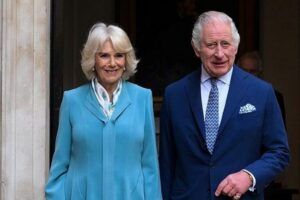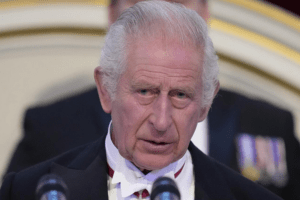
2020 has been the year of drama and significant accomplishments for Prince Harry and his wife, Meghan Markle.
Since stepping down from their royal duties, the pair raised eyebrows. They started a mini-international war of words with some of their decisions and comments about political and race-related issues.
The Duke and Duchess of Sussex spilled a lot of ink, especially after it was revealed that they had signed a massive deal with Netflix.
The power couple, formerly known as Sussex Royal, is set to launch their own production company and are eager to create great and quality content such as documentaries, docuseries, feature films, scripted shows, and children’s programming.
The reported $150 million deal surprised everyone in the royal family, especially Queen Elizabeth II, because she was not made aware of it before it was publicly announced.
A royal insider spoke to The Sun and explained that the Queen rapidly thought of Prince Edward‘s catastrophic production company that was considered “a sad joke” by the industry.
The source revealed to the publication: “Harry did not inform the Queen about the Netflix deal. Her Majesty is all too aware of the pitfalls of when senior royals embark on lucrative projects—Prince Edwards’ production flop and some of the deals Sarah Ferguson has signed over the years, to name a few. Her view is simple, the Royals are not for sale, and danger surrounds high profile roles outside of the institution itself. But knowing her grandson Harry as she does, the Queen will know there would have been little chance of talking Harry and Meghan out of it.”
In 1993, Queen Elizabeth’s youngest son proudly launched Ardent Productions, a production company, to create television and theater content.
The company was up and running for nine years and only had one successful documentary about Edward VIII. The business was seen as “a sad joke” and a money pit by those in the industry.
An industry insider told The Guardian: “As time has gone on, their incompetence has become more and more obvious. There have been very small examples of vanity TV companies before, but not on this scale. Any company in any industry that had burned through that much share capital without making a profit would’ve been closed down by its investors years ago.”
The production company landed in serious trouble after its employees made the bizarre decision to film Prince William at the University of St, which was a violation of his privacy.






